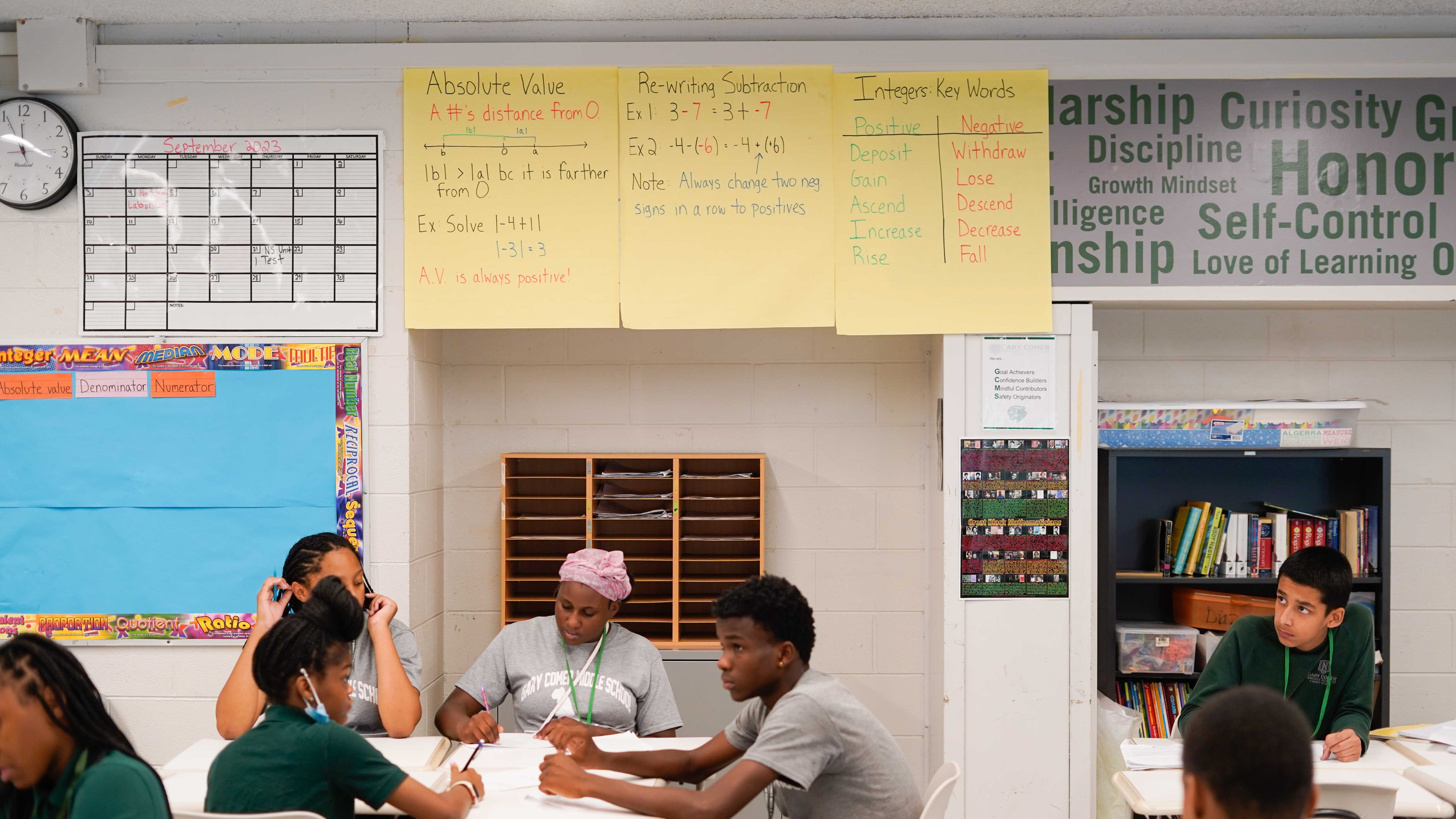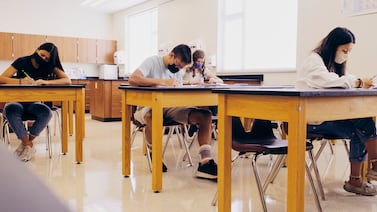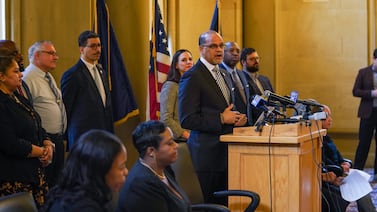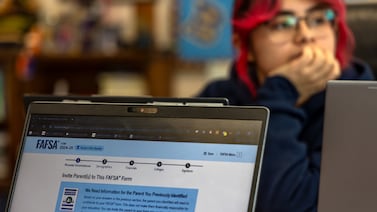The Illinois State Board of Education is proposing a $653 million increase to the state’s education budget, bringing the overall budget for next school year to $11 billion. The proposal — less than what advocates pushed for during hearings in the fall — is ultimately voted on by state lawmakers.
The state board unanimously approved the budget proposal — Tony Sanders’ first as state superintendent — at its board meeting on Wednesday.
Sanders’ recommendation includes an increase of $350 million for the state’s evidence-based funding formula for K-12 public schools, which distributes state money to under-resourced schools that serve a majority of students from low-income households, English learners, and students with disabilities. His proposal also asks for an additional $75 million increase for the state’s early childhood block grant.
Illinois’ portion of federal pandemic funding, over $7 billion, is set to run out by the end of September 2024. Schools could see a cut in staff and programs, especially since it is unlikely that state dollars will make up the difference. State budget officials told the state board of education that they are seeing a drop in state revenue.
State education advocates have pushed the state to increase the evidence-based funding formula by $550 million annually to help the state fully fund schools by 2027. The state has approved an additional $350 million each year except for 2020, during the first year of the coronavirus pandemic — keeping in line with a bipartisan promise made by lawmakers in 2017.
Gerson Ramirez, senior government relations associate for Advance Illinois, a nonprofit organization that advocates for education, told the board Wednesday that the evidence-based funding formula has done a good job at directing more funds to school districts with high needs. However, he estimates that more than 1.5 million students in underfunded school districts are from low-income households and are students of color.
“We, and many others, believe we should put an additional $550 million into the formula to make up for the skip budget year, to address inflation, and to meet ongoing needs,” said Ramirez.
Other advocates asked for more funding to support students experiencing homelessness throughout the state. The federal government set aside $800 million in COVID relief funding for students experiencing homelessness. Illinois received $33 million to help families pay for clothing, temporary housing, and transportation, among other assistance.
Niya K. Kelly, director of state legislative policy, equity, and transformation at the Chicago Coalition for the Homeless, asked the state to increase funding for students experiencing homelessness. At a time when federal funds are set to expire and there isn’t a clear number on how many students are actually homeless, Kelly said, state funding is needed more than ever.
“It is imperative that the state step in. I know, oftentimes, people say that if we’ve made do with funding levels that we have then we should continue on that path,” said Kelly. “For homeless families and for the folks who are supporting them, it’s not enough at this moment.”
Become a Chalkbeat sponsor
According to the U.S Department of Housing and Urban Development, homelessness has grown 12% nationwide since 2022. However, Kelly said HUD’s reported numbers might only be a fraction of what the actual numbers are.
Kelly also said she believes there could be an undercounting of students in Illinois. In the state’s report card, Illinois has identified over 42,000 students as experiencing homelessness during the 2022-23 school year.
State budget and financial officials signaled at the state board’s monthly meeting in December that Illinois’ education budget could see some belt-tightening in the future. The Governor’s Office of Management and Budget predicted that the state board could expect to receive an additional $425 million in state dollars for the next fiscal year.
The approved budget proposal will head to Gov. J.B. Pritzker’s office for consideration. Pritzker is set to announce his proposed budget to state lawmakers on Feb. 21.
Samantha Smylie is the state education reporter for Chalkbeat Chicago, covering school districts across the state, legislation, special education, and the state board of education. Contact Samantha at ssmylie@chalkbeat.org.






